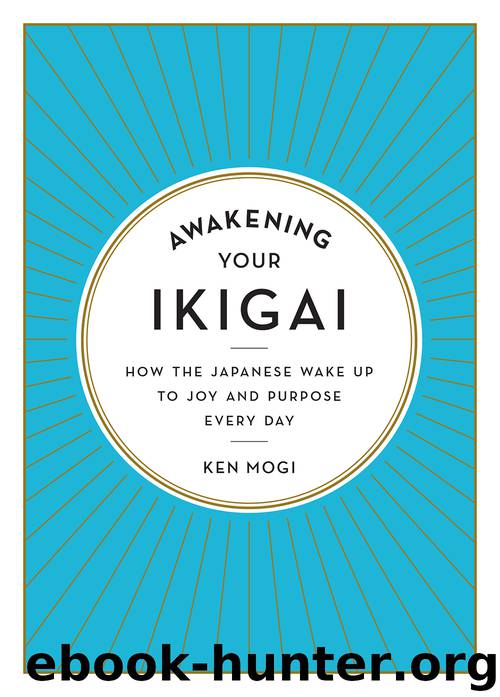Awakening Your Ikigai by Ken Mogi

Author:Ken Mogi
Language: eng
Format: epub
Publisher: The Experiment
* * *
Here’s one last and remarkable example of people doing something without any prospect of recognition. The Japanese imperial household historically has a strong cultural tradition. Science and the arts have been considered important parts of the imperial patronage. Music is central to them. The musicians serving the Imperial Family have designated roles in the provision of the special music for the hundreds of ceremonies and rituals held in the Imperial Palace every year. These traditional forms of ancient imperial court music and dance together are called gagaku. Gagaku has been played at court for more than a thousand years.
I once had a conversation with Hideki Togi, a famous court musician in the gagaku tradition. Togi is from the Togi family, involved in gagaku since the Nara period (710–794), that is, for more than 1,300 years. Togi told me that the court musicians play at many occasions, such as the 1,200-year anniversary of a particular emperor. When I asked who would listen to such music, he simply replied “nobody.”
He continued, “We play instruments, sing and dance, while no audience is present, within the great tranquility of the Imperial Palace. We play music late into the night. Sometimes, we feel as if the spirits of the deceased emperors come down from heaven, stay for a while with us, enjoy the music, and then go back.” Togi said all this as if there was nothing extraordinary in what he was saying. Apparently, for musicians of the gagaku tradition, playing in the absence of an audience has always been something that is taken for granted.
Togi’s narrative is a very poetic and poignant description of the state of flow, being in the here and now. Once you achieve a state of blissful concentration, an audience is not necessary. You enjoy the here and now, and simply go on.
In life, we sometimes misplace priorities and significance. Too often, we do something for the sake of rewards. If the rewards are not forthcoming, we are disappointed, and lose interest and zeal in the work. That is simply the wrong approach. In general, there are delays between actions and rewards. Even if you finish a good work, rewards are not necessarily forthcoming: Reception and recognition occur in a stochastic way, depending on many parameters out of your control. If you can make the process of making the effort your primary source of happiness, then you have succeeded in the most important challenge of your life.
So make music, even when nobody is listening. Draw a picture, when nobody is watching. Write a short story that no one will read. The inner joys and satisfaction will be more than enough to make you carry on with your life. If you have succeeded in doing so, then you have made yourself a master of being in the here and now.
Download
This site does not store any files on its server. We only index and link to content provided by other sites. Please contact the content providers to delete copyright contents if any and email us, we'll remove relevant links or contents immediately.
The Four Agreements by Don Miguel Ruiz(5510)
Flow by Mihaly Csikszentmihalyi(4050)
The Four Tendencies by Gretchen Rubin(4024)
You Do You by Sarah Knight(4024)
Adulting by Kelly Williams Brown(3667)
The Hacking of the American Mind by Robert H. Lustig(3579)
A Simplified Life by Emily Ley(3567)
Right Here, Right Now by Georgia Beers(3497)
The Power of Positive Thinking by Norman Vincent Peale(3446)
The Art of Happiness by The Dalai Lama(3382)
Ikigai by Héctor García & Francesc Miralles(3139)
The Little Book of Hygge by Meik Wiking(3079)
The French Women Don't Get Fat Cookbook by Mireille Guiliano(2982)
The Heroin Diaries by Nikki Sixx(2930)
The Choice by Edith Eva Eger(2895)
Why Buddhism is True by Robert Wright(2824)
The Courage to Be Disliked by Ichiro Kishimi & Fumitake Koga(2793)
Make Your Bed by William H. Mcraven(2675)
Spark Joy by Marie Kondo(2674)
